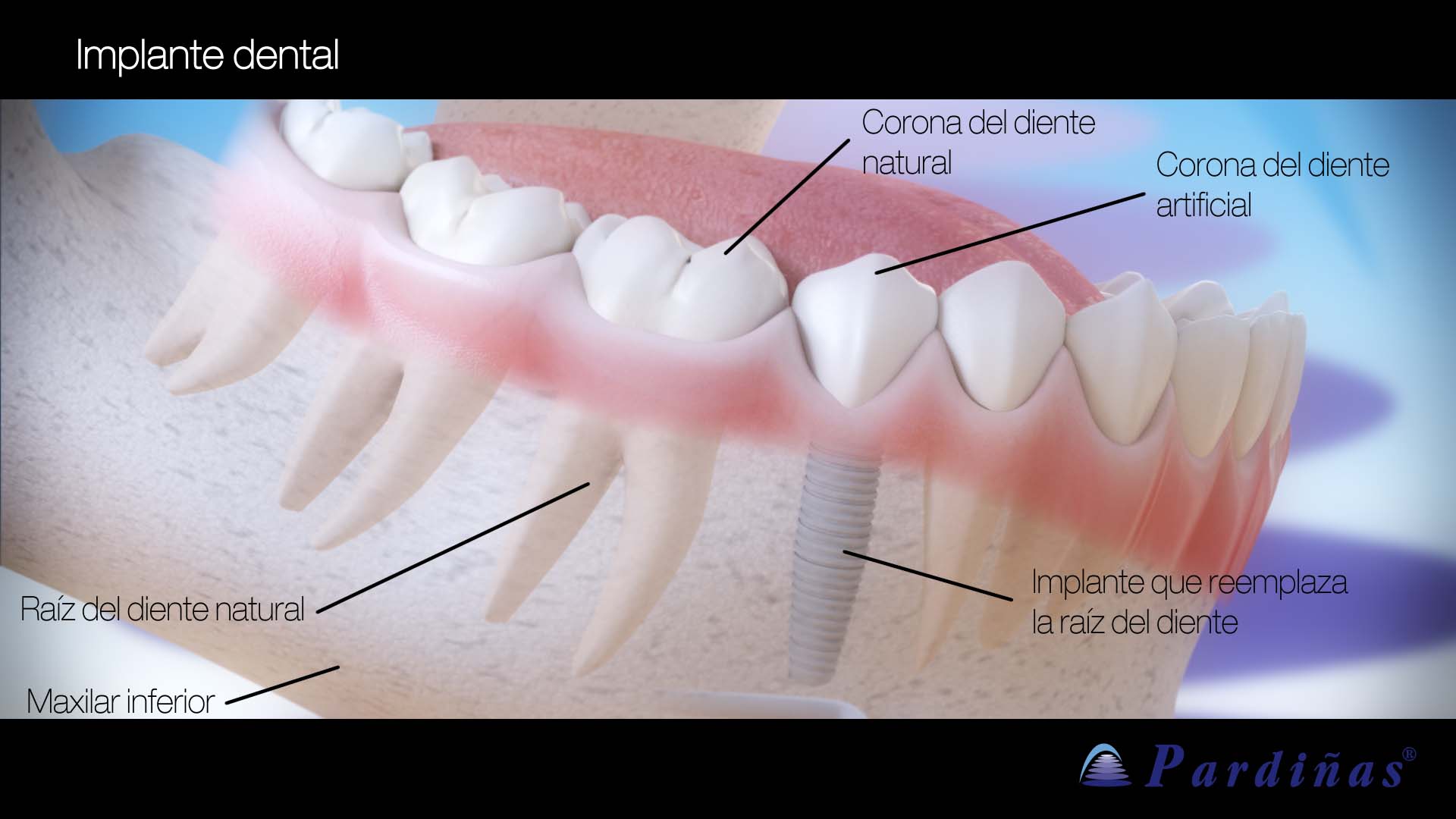Indications and Contraindications of dental implants
Dental implants serve as artificial roots which can act as supports for the replacements of missing teeth.
In principle, any person who has the absence of some or all of their teeth is a candidate to receive implants knowing that there are other alternatives such as removable partial dentures, full dentures or conventional fixed prosthesis.

Totally edentulous patients
Dental implants serve as artificial roots which can act as supports for the replacements of missing teeth.
In principle, anyone with one or more missing teeth can receive implants, knowing that there are other alternatives such as partial or complete removable prostheses or conventional fixed prostheses.
Implante unitario
If a person with completely false teeth has problems because they are loose and interfere when eating, talking, laughing or kissing, or for other reasons such as nausea reflexes or the psychological inability to use them even when the false teeth are firmly in place, then this is a reason to choose prostheses based on implants, either fully fixed or using an overdenture.
An overdenture is a removable prosthesis held in place by a number of implants.
Partially edentulous patients
Other important indications are posterior edentulism in patients who do not want to wear a prosthesis "with hooks", or when there are intermediate gaps and even despite being able to wear something fixed resting on their teeth, do not want to grind down their teeth, especially if those teeth are also intact.
False expectations
The first contraindication would be unrealistic expectations from the patient; therefore it is necessary to perform a study and inform the patient of all the problems of his case, knowing what can be achieved in terms of aesthetics and function and the limitations that it may have.
Periodontal disease
Before placing the implants, the mouth must be healthy, that is, without plaque or tartar, with no cavities, without infectious foci, with healthy mucosa and with a possible periodontal disease (pyorrhea) controlled.
Serious systemic diseases
Patients with serious systemic diseases, with significant mental disorders (due to the added difficulty of having a proper hygienic maintenance of implants), drug addicts (including heavy smokers and alcoholics here) should not wear implants.
Smokers
Regarding smokers, it has been shown that there is an increased risk of implant failures. It is very important that the patient is either a non-smoker, or that smokes less than 5 cigarettes a day. The nicotine in tobacco causes a reduction in the proliferation of red and white blood cells and a decrease in the blood supply to oral tissues (bone and gums), thereby reducing the supply of oxygen to this area, endangering the osseointegration of the implants.
Lack of bone or bone support:
In people who have very resorbed jaws or poor bone quality, we may have difficulties to place the implants, since they occupy a volume and a minimum height and width is necessary. In these cases, it may be necessary to perform a previous bone graft.
In the back of the upper jaw, the very low maxillary sinuses (hollow cavities on both sides of the nose) can also limit their placement. In the lower jaw, the anatomical situation of the lower dental nerve may present a problem due to its proximity to the future implant, making it necessary to reduce the length of the implant or use other techniques to avoid damaging it.
Bruxism
The type of bite of the patient must also be taken into account; bruxist patients (nocturnal grinders) can make an implant fail due to an excess load on them.
It is therefore important to make a preliminary diagnosis as detailed as possible, analyzing each and every one of the clinical and functional parameters and, of course, aesthetics.